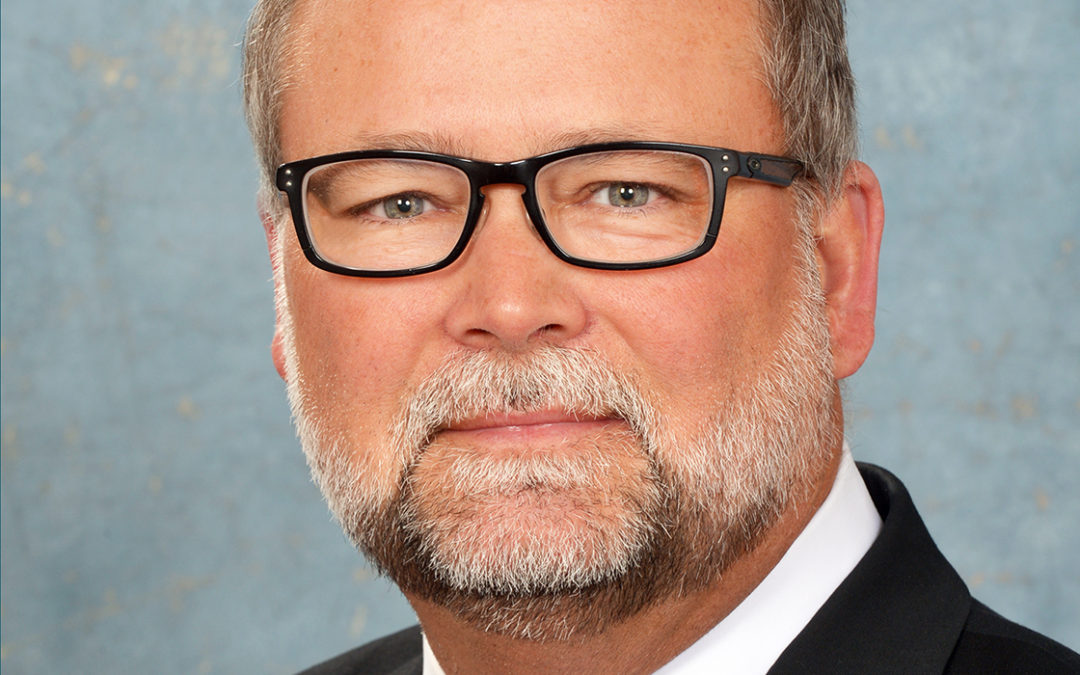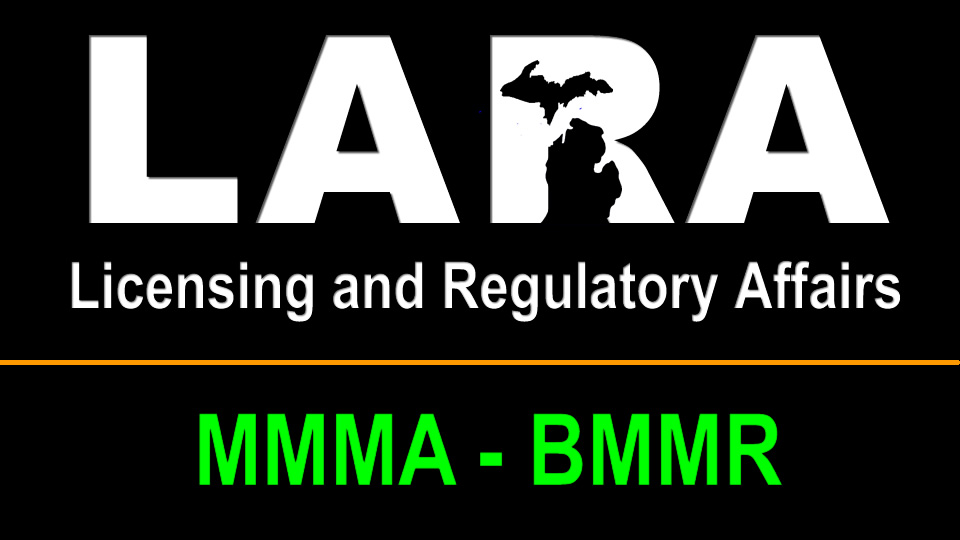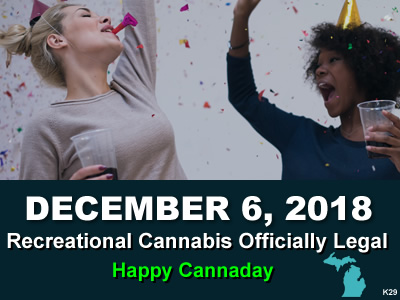
Nov 30, 2018 | Blog, Legalization, News
Michigan Senator Arlan Meekoff – Repeal Prop 1 Sections and Ban Home Grow
Michigan Regulation and Taxation of Marihuana Act, by amending the title and sections 1, 2, 3, 4, 5, and 15 (MCL 333.28101, 333.28102, 333.28103, 333.28104, 333.28105, and 333.28115), and by adding sections 201, 205, 206, 207, 208, 301, 302, 303, 305, 401, 402, 403, 404, 405, 406, 407, 408, 409, 501,502, 503, 504, 505, 601, 602, 603, 604, 701, 702, and 801; and to repeal acts and parts of acts.
THE PEOPLE OF THE STATE OF MICHIGAN ENACT:

Nov 29, 2018 | Blog, Hemp, News
A great article on a great website Marijuana Moment that talks about Whole Foods saying that Hemp is going to be one of the to 10 food trends in 2019.
In a press release, the company said it relied on “seasoned trend-spotters” who have “more than 100 years of combined experience in product sourcing, studying consumer preferences and participating in food and wellness industry exhibitions worldwide,” to compile its new report on what to expect next year.
So what will be flying off the shelves in 2019? According to the experts, lots and lots of hemp.
“Hemp hearts, seeds and oils are nothing new to food and body care lovers—they’re in everything from waffle mix to dried pastas,” the company wrote. “But a new interest in the potential benefits stemming from other parts of hemp plants has many brands looking to explore the booming cannabis biz.”
“While CBD oil is still technically taboo (prohibited in food, body care and dietary supplements under federal law), retailers, culinary experts and consumers can’t miss the cannabis craze when visiting food industry trade shows, food innovators conferences or even local farmers markets.”
(For the record, there’s a lot of confusion and disagreement about the federal legality of hemp-derived CBD oil, which you can read more about here.)
The trend won’t stop at CBD, either. Apparently phytocannabinoids, those compounds that are present in cannabis but also in other plants, are “becoming more visible and prevalent.”
“It’s clear that hemp-derived products are going mainstream, if not by wide distribution, then by word of mouth!”
Hemp products that the trend-spotters recommended include a line of health supplements containing phytocannabinoids, a face cream comprised of hemp stem cells and organic shelled hemp seeds.
While cultivating marijuana’s non-intoxicating cousin is currently illegal in the U.S. outside of exceptions for state-approved hemp research programs authorized under the 2014 Farm Bill, there’s a strong possibility that industrial hemp will be broadly legalized—possibly by the end of the year—once the House and Senate reconcile their versions of a new Farm Bill and put it on the president’s desk.
Senate Majority Leader Mitch McConnell (R-KY), who introduced the provision, issued a “guarantee” last week that hemp legalization will be included in the final legislation.
That would give the hemp business an even greater boost going into the new year.
Visit the MMMA Forum to learn more and open discussions
Komorn Law has represented numerous clients through the legal chaos of starting up a business in the Michigan Medical Marihuana Industry as well as consulting and legal representation for Medical Maruhuana Patients and Caregivers.
If you or someone you know has been arrested as a result of Medical Marijuana, DUI, Drugs, Forfeiture, Criminal Enterprise or any other criminal charges please contact our office and ensure you’re defended by an experienced lawyer.
Attorney Michael Komorn is recognized as an expert on the Michigan Medical Marihuana Act. He is the President of the Michigan Medical Marijuana Association (MMMA), a nonprofit patient advocacy group which advocates for the rights of medical marijuana patients and their caregivers.
Contact us for a free no-obligation case evaluation 800-656-3557.
Follow Komorn Law
This page is for informational purposes only. Laws, regulations and the world change routinely, therefore we insist you consult an attorney for the most current legal information.

Nov 29, 2018 | Blog, LARA-MMFLA Info, News
The 2018 Farm Bill will include a provision to legalize industrial hemp, Senate Majority Leader Mitch McConnell (R-KY) and the top Republican and Democrat on the House Agriculture Committee confirmed on Thursday.
Lawmakers in the Senate and House Agriculture Committees announced that they’d reached an agreement in principle on the large-scale food and agriculture policy legislation and were in the process of finalizing “legal and report language.” But while there’s still “more work to do,” it seems that hemp legalization made the cut.
The Congressional Budget Office is currently scoring the bill. Once that’s complete and language is officially filed, the Farm Bill will be teed up for up-or-down votes in both chambers of Congress and, pending approval, sent to the president’s desk. Lawmakers are hoping to pass the bill before the end of the year.
Hemp would be defined as all parts of the plant—including seeds and extracts—as long as they contain less than 0.3 percent THC, according to VoteHemp.The crop would also be entirely removed from the Controlled Substances Act under the legislation.
States that want to be primary regulators are required to submit applications outlining their regulatory plan to the USDA, which will have 60 days to make a decision.
When Congress passed the Farm Bill of 2014, it included Sec. 7606 authorizing state regulated research pilot programs with hemp. That program has been a huge success growing to include over 3,500 licensed participants who planted more than 77,000 acres in 2018. At the same time, the U.S. market for hemp products has grown to more than $800 million as of 2017. However, hemp pilot program regulations are burdensome and are made even more challenging by heavy handed Drug Enforcement Administration oversight. Vote Hemp, along with thousands of businesses and advocates, have been pushing for commercial hemp farming legislation and removal of roadblocks to the growth of the U.S. hemp industry.
Congress has been negotiating a new Farm Bill and is once again considering federal policy regarding hemp thanks to leadership from Senator McConnell (R-KY) and Senator Wyden (D-OR). The House and Senate each passed their versions of the bill and the Senate version included language from the Hemp Farming Act of 2018 that removes hemp from the Controlled Substances Act and allows farmers to grow hemp commercially under a state or federal license.
What will the new Farm Bill hemp law do?
- Define industrial hemp broadly to cover all parts of the Cannabis plant including seeds, derivatives, extracts, cannabinoids etc as long as it has a THC level of 0.3% or less
- Remove hemp completely from the Controlled Substances Act (CSA)
- Make USDA the sole federal regulatory agency overseeing hemp cultivation
- Include native American tribes which were not explicitly included in Sec. 7606 of the 2014 Farm Bill
- Authorize and fund hemp research as part of the Supplemental and Alternative Crops program and the Critical Agricultural Materials Act
- Authorize federal crop insurance for hemp
- Require USDA to develop federal regulations for hemp farming that may be used in states that choose not to be the primary regulator
- Require states wishing to have primary regulatory authority to submit a plan for regulation to USDA that meets minimum requirements
- Repeals Sec. 7606 hemp research program 1 year after USDA establishes federal regulations for hemp farming
- Require USDA to conduct a study of state hemp agricultural pilot programs
If the Farm Bill is signed into law before the end of 2018, it will go into effect beginning on January 1, 2019. However, it will take time for the new law to be implemented. In states where hemp is legal, state departments of agriculture will need to submit regulatory plans to USDA for approval.
There are a few minimum requirements that a state plan must have:
- a practice to maintain relevant information regarding land on which hemp is produced, including a legal description of the land
- a procedure for testing the crop
- a procedure for conducting annual inspection (limited to one per year)
- a procedure for the effective disposal of products that are produced in violation
- a procedure to comply with the enforcement procedures
- a certification that the State or Indian tribe has the resources and personnel to carry out the requirements
What about hemp extracts containing CBD?
The Farm Bill removes hemp completely from the CSA. It makes is 100% clear that cannabinoids are included so hemp derived CBD will not be a controlled substance. The bill does not change requirements of the Federal Food, Drug, and Cosmetic Act so producers are still subject to FDA regulations. The FDA has stated in an FAQ that it is their current opinion that CBD may not be sold as a dietary supplement but they have not said that whole plant hemp extracts are covered. Their logic is that a previous application for the drug Epidiolex prohibits the sale of the same substance as a dietary supplement. But Epidiolex is pure CBD and is not the same as a whole plant hemp extract. The industry does not agree with FDAs stance on CBD and there will likely be further developments on this.
Visit the MMMA Forum to learn more and open discussions
Komorn Law has represented numerous clients through the legal chaos of starting up a business in the Michigan Medical Marihuana Industry as well as consulting and legal representation for Medical Maruhuana Patients and Caregivers.
If you or someone you know has been arrested as a result of Medical Marijuana, DUI, Drugs, Forfeiture, Criminal Enterprise or any other criminal charges please contact our office and ensure you’re defended by an experienced lawyer.
Attorney Michael Komorn is recognized as an expert on the Michigan Medical Marihuana Act. He is the President of the Michigan Medical Marijuana Association (MMMA), a nonprofit patient advocacy group which advocates for the rights of medical marijuana patients and their caregivers.
Contact us for a free no-obligation case evaluation 800-656-3557.
Follow Komorn Law
This page is for informational purposes only. Laws, regulations and the world change routinely, therefore we insist you consult an attorney for the most current legal information.

Nov 29, 2018 | Blog, LARA-MMFLA Info, News
The Bureau of Medical Marihuana Regulation (BMMR) enforces the Administrative Rules under the authority of the Medical Marihuana Facilities Licensing Act (MMFLA).
Administrative Rule 62 (R 333.262) states that marihuana-infused products processed, sold, or transferred through provisioning centers must not exceed the maximum THC levels as established by the department.
For the purposes of maximum THC levels for marihuana-infused products, the department published a list of maximum THC concentration and serving limits.
The list is available here https://www.michigan.gov/documents/lara/THC_Limits_Bulletin_639431_7.pdf.
Next Level Delivery of your Cannabis
Visit the MMMA Forum to learn more and open discussions
More information
Komorn Law has represented numerous clients through the legal chaos of starting up a business in the Michigan Medical Marihuana Industry as well as consulting and legal representation for Medical Maruhuana Patients and Caregivers.
If you or someone you know has been arrested as a result of Medical Marijuana, DUI, Drugs, Forfeiture, Criminal Enterprise or any other criminal charges please contact our office and ensure you’re defended by an experienced lawyer.
Attorney Michael Komorn is recognized as an expert on the Michigan Medical Marihuana Act. He is the President of the Michigan Medical Marijuana Association (MMMA), a nonprofit patient advocacy group which advocates for the rights of medical marijuana patients and their caregivers.
Contact us for a free no-obligation case evaluation 800-656-3557.
Follow Komorn Law
This page is for informational purposes only. Laws, regulations and the world change routinely, therefore we insist you consult an attorney for the most current legal information.

Nov 28, 2018 | Blog, Legalization, News
Voted In and Certified
If you were born yesterday you may not know that voters approved the legalization proposal in the November 2018 election. So… recreational use of marijuana will become “legal” before the end of the year in the state of Michigan on.
December 6, 2018
A date which some of us never thought would happen in our lifetime. It has been a long struggle and many have suffered life altering encounters with the powers at be that abuse those powers for self gain and probably self pleasure.
You Can – But You Can’t.
One must remember that there are laws regulating the use and distribution of “legal” marijuana and you can still be arrested and prosecuted for not following the laws to a T.
The Board of State Canvassers certified the election, meaning recreational cannabis will become legal in Michigan according to the Secretary of State on Dec. 6, 2018.
Marijuana will be decriminalized in the state, but you won’t be able to purchase it just yet. It could take up to a year for state legislators and businesses to figure out the licensing aspect.
Adults over the age of 21 will be allowed to cultivate, possess and consume marijuana on Dec. 6. An adult over the age of 21 will be allowed to grow no more than 12 plants at your home.
Don’t forget – It is still a CSA schedule 1 drug according to the state and the feds.
The Gray Areas
This is going to be a whole topic in itself and will addressed in a different article later. But as it is written currently there are gray areas in the act that can be interpeted several ways and taken advantage of by all law enforcement and the private citizen.
Can you say these two words…Case Law. There will be many new ones. Just like the MMMA sprouted.
So prosecutors, law enforcement, judges, court reporters and all those who job depends on the enforcement of marijuana fret not… there is still plenty of punishment to go around and plenty of money to be made. Cause real crime does not pay.
How would you get marijuana?
According to the act… one can not sell marijuana unless you are licensed. You can not make any private monetary transaction to obtain marijuana unless the state gets to scoop a handful of frosting off the cake.
Let the creative ways of pushing the threshold begin…
One CAN give it away. Don’t carry more than you’re allowed. Don’t have more at your house than you’re allowed. This leaves more gray areas than the original MMMA and will certainly trigger a number of case laws. Private citizens who voted it into law will be at risk and law enforcement will take advantage of this for a generation or two.
It’s not the marijuana charge prosecutors will throw at you. It’s all the other charges that will get you. Here is Section 4 of the act for you to read.
How would you buy marijuana?
Businesses would be licensed by the state. The initiative allows cities to decide if they want to allow these businesses in their municipality. The time frame for when businesses could obtain such a license is unclear. It sounds like 2019 but it took other states a couple years to figure it out. Hopefully Michigan can learn from them and improve upon it.
Can you grow your own marijuana?
Yes, you will be allowed to grow NO MORE than 12 plants at your home. If you have a license you will be allowed to legally grow more.
Here are the license types that would be offered:
- Marijuana retailer
- Marijuana safety compliance facility
- Marijuana secure transporter
- Marijuana processor
- Marijuana microbusiness
- Class A marijuana grower authorizing cultivation of not more than 100 marijuana plants
- Class B marijuana grower authorizing cultivation of not more than 500 marijuana plants
- Class C marijuana grower authorizing cultivation of not more than 2,000 marijuana plants
Visit the MMMA Forum to learn more and open discussions
More information
Komorn Law has represented numerous clients through the legal chaos of starting up a business in the Michigan Medical Marihuana Industry as well as consulting and legal representation for Medical Maruhuana Patients and Caregivers.
If you or someone you know has been arrested as a result of Medical Marijuana, DUI, Drugs, Forfeiture, Criminal Enterprise or any other criminal charges please contact our office and ensure you’re defended by an experienced lawyer.
Attorney Michael Komorn is recognized as an expert on the Michigan Medical Marihuana Act. He is the President of the Michigan Medical Marijuana Association (MMMA), a nonprofit patient advocacy group which advocates for the rights of medical marijuana patients and their caregivers.
Contact us for a free no-obligation case evaluation 800-656-3557.
Follow Komorn Law
This page is for informational purposes only. Laws, regulations and the world change routinely, therefore we insist you consult an attorney for the most current legal information.

Nov 28, 2018 | Blog, LARA-MMFLA Info, News
LANSING, Michigan. NOV 2018 – Michigan lawmakers approved medical marijuana licensing rules, including a provision to allow provisioning centers (dispensaries) to deliver to MMMP cardholders’ homes.
The regulations were passed Tuesday by the Joint Committee on Administrative Rules, a panel of legislators that oversees rules proposed by state agencies.
Provisioning centers will be able to deliver up to 2.5 ounces of marijuana per patient and do up to 10 deliveries at a time. The state is in the midst of licensing medical marijuana businesses under a 2016 law.
Next Level Delivery of your Cannabis
Visit the MMMA Forum to learn more and open discussions
More information
Komorn Law has represented numerous clients through the legal chaos of starting up a business in the Michigan Medical Marihuana Industry as well as consulting and legal representation for Medical Maruhuana Patients and Caregivers.
If you or someone you know has been arrested as a result of Medical Marijuana, DUI, Drugs, Forfeiture, Criminal Enterprise or any other criminal charges please contact our office and ensure you’re defended by an experienced lawyer.
Attorney Michael Komorn is recognized as an expert on the Michigan Medical Marihuana Act. He is the President of the Michigan Medical Marijuana Association (MMMA), a nonprofit patient advocacy group which advocates for the rights of medical marijuana patients and their caregivers.
Contact us for a free no-obligation case evaluation 800-656-3557.
Follow Komorn Law
This page is for informational purposes only. Laws, regulations and the world change routinely, therefore we insist you consult an attorney for the most current legal information.






